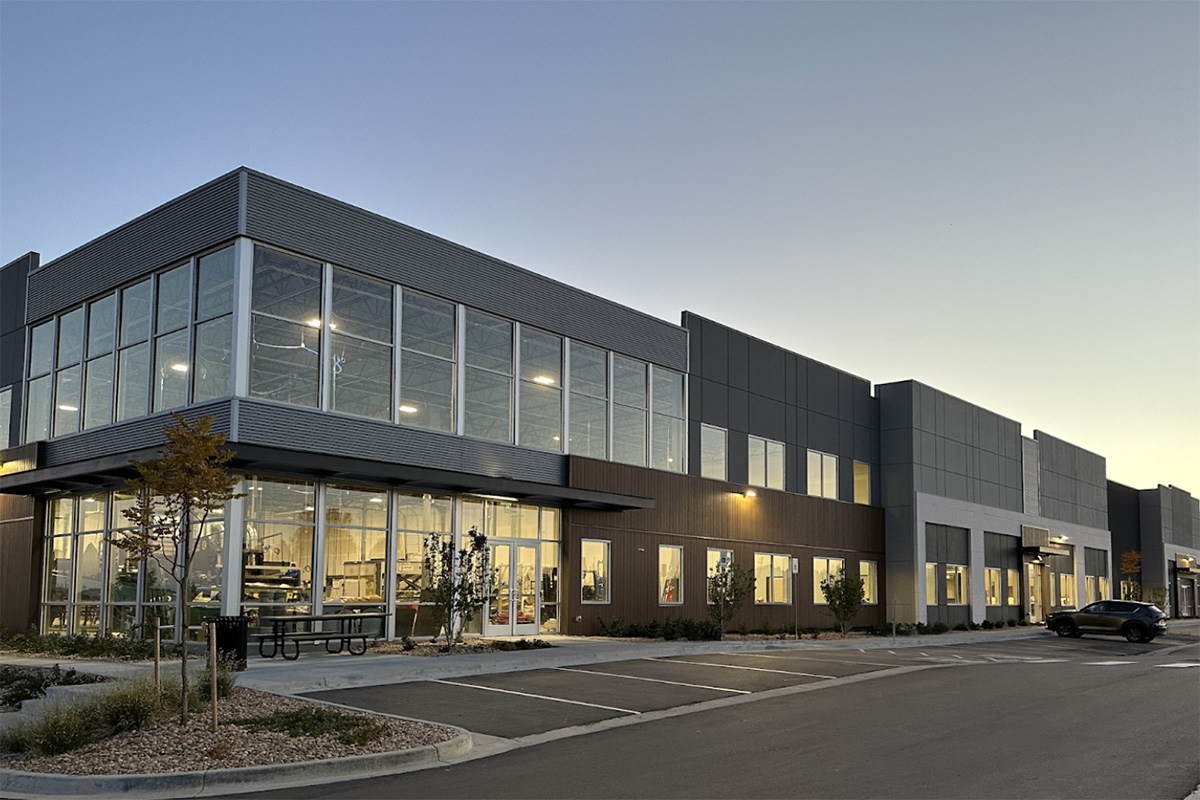
Headquartered in Louisville, Colorado, AMP has made its first move into technology-enabled operations with the acquisition. | Courtesy AMP Robotics
AMP has made its first move into technology-enabled operations, acquiring the Portsmouth processing facility assets from RDS of Virginia.
The Louisville, Colorado-based producer of AI-driven sorting solutions for the waste and recycling industry first partnered with RDS Portsmouth in 2023, installing an AMP ONE system to process municipal solid waste (MSW) at its facility. In addition to the MSW processing, RDS Portsmouth’s operations also include a single-stream facility, which AMP plans to grow.
The acquisition is the “first of many that are going to come forward from a facility standpoint,” said AMP CEO Tim Stuart.
Before partnering with AMP, RDS relied on traditional diversion processes such as manual sorting and equipment that separated materials by particulate size. This approach required significant staffing and was constrained with inefficiencies.
The pilot program between AMP and RDS involved working with the Southeastern Public Service Authority of Virginia (SPSA) as a proof of concept for AI-powered sorting. The authority manages MSW for eight member communities in the region.
As SPSA went through its RFP process and selected AMP to install a fully-automated sorting system at its 33,000-square-foot facility, the Portsmouth location proved crucial as it was already one of the facilities serving SPSA’s member communities, Stuart said.
“It just made sense for us to commit further with this facility, as we partner with SPSA for the next 20 years. It is designed just for SPSA because it’s in the middle of this eight member community. It’s a great asset that’s going to help deliver all this diversion that we’re going to do for SPSA in the next 20 years,” Stuart said, referring to AMP’s 20-year agreement with the authority.
“We are excited and very bullish on the opportunity to divert lots of materials that are traditionally going to a landfill, and do it in an economic, environmentally sensitive way,” he said.
The implementation of AI-driven tech enables a capacity of 150 tons of MSW per day, sorting recyclables and organics from bagged residuals with a 90% uptime, according to AMP.
Stuart said that AI has eliminated the cost barrier that historically killed mixed-waste processing efforts, allowing facilities to operate within existing tip fees while achieving 50% or more recovery rates.
With the shift from manual labor to automation, roles and responsibilities for the Portsmouth facility workers will shift, rather than facing job elimination.
“The typical recycling or another facility has lots of people on the front line sorting material. We’re going to shift those positions over to much more technical support, more maintenance system operations,” Stuart said. “I’d say, level up the job skills associated with that, and I think there’s ample opportunity for folks to learn those skills. And this is the start of a wave going forward that I think the whole industry is going to see. So we’re excited to be in the forefront of that.”
Stuart noted AMPs expansion plans across North America, with construction and demolition waste and textile recycling targets in the future, positioning the acquisition as the first of many strategic facility purchases.
“I think as technology continues to evolve and we get better at the use of it, it opens up the doors for other waste streams that are out there for us to apply this technology,” he said, adding, “It’s going to be a fun ride over the next five years.”
More stories about MRFs

